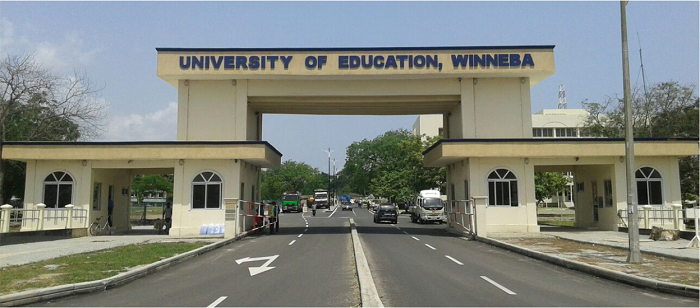KB Asante: Voice From Afar column

Plea to UEW, UTAG
The best compliment that one can pay to a friend is to be candid with him. Anonymous
Advertisement
There are some who hold the view that the law at times is an ass, especially when they find decisions of the court unfavourable.
The reality, however, is that it is when we refuse to act in accord with decisions of the court that there is disorder. Indeed any decision of the court, no matter how absurd, can be resolved through the judicial process for as long as we uphold the rule of law.
It is on this note that I want to add my voice to the appeal by the Minister in-charge of Tertiary Education, Professor Kwesi Yankah, to members of the Winneba branch of the University Teachers Association of Ghana (UTAG) to resort to the rule of law in resolving the issues that have arisen following the suit brought against the management of the University of Education Winneba (UEW), resulting in the ruling that the vice chancellor and finance officer stand aside until the determination of the substantive matter as to whether the processes of their appointment were regular and lawful.
The courts, no matter how we see them, are the only avenues of seeking justice in a peaceful and orderly manner. If the UTAG does not find the interim decision of the court acceptable, as a disciplined organisation, what they have to do is to seek redress through the court system and not any alternative route. It is because of that the UTAG wanted to be joined to the suit. That means they had confidence in the judicial system. Thus, after the court had made an interim determination, the same UTAG resorted to impunity, meaning that if they had joined, they would not have respected the decision of the court and that would have made very negative commentary.
As somebody associated with the UEW for the past decade, I know both the vice chancellor and the finance officer. They are both sociable and easily approachable. Indeed, I have on countless times approached the finance officer and he has always been of service. They did not appoint themselves to the offices they hold. More importantly, they have not been accused of any malfeasance. They were not appointed by UTAG for which the association should feel slighted.
Therefore, what the two officers need from UTAG is the resort to the rule of law such that at the end of the day, they will be vindicated and restored to their positions to continue with their work. The fact that UTAG is ready to stop work in solidarity with the two is an indication that they have performed creditably. That is a mark of trust and confidence. However, the process of their appointment is another issue that must be dealt with also by law.
Members of UTAG at UEW would not have been happy if the interim decision had gone their way and the plaintiff in the matter had resorted to mob action to harass the affected officials from performing their obligations. As they say, whoever seeks equity must come with clean hands. Today a court of competent jurisdiction has given a ruling that is not appealing to teachers at the UEW and their response is to resort to impunity. Tomorrow, if the teachers seek the services of the courts and they get what they want, would they expect others to accept the decision of the court?
University teachers are among the most respected group in the country. Therefore, any actions that they embark upon must be informed by incontestable facts. In industrial relations, strike actions must not always be the first step in seeking redress no matter how good one’s case is. These days when trade unionists are changing their strategies and tactics in dealing with issues, it will be unfortunate that our academics, who ordinarily are seen as leading lights are resorting to impunity merely because they are dissatisfied with a decision of a superior court of justice.
We must all appreciate that as Ghanaians, in adopting the 1992 Constitution, we agreed to follow the rule of law and due process in resolving all disputes that may arise. When there are disputes, unless we agree to alternative dispute resolution mechanisms, the only mechanism for redress is the courts. We must all, thus, submit to decisions of the courts and use the judicial process to seek redress and where we are not satisfied, go through the same process to address issues to ensure that there is peace and order. We must not do anything to erode public trust and confidence in the judicial process. If we undermine the courts system because they have given a judgement we do not like, we would destroy the very basis of the rule of law and undermine constitutionalism.



